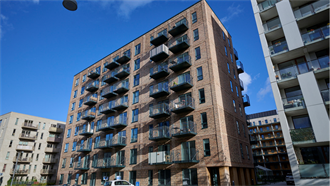UK student accommodation group Unite said on Thursday that its reservations ahead of the new academic year are at similar levels than in 2019, but warned it could be hurt by virus-enforced travel restrictions reducing numbers of international learners.
Reservations for the 2020/21 financial year are currently 79%, in line with the same period last year. ‘However, we recognise there is a risk that travel restrictions imposed to combat coronavirus result in a reduced intake of international students for 2020/21,’ Unite said.
The company, which owns 30,209 beds in 79 properties across 22 university towns and cities in the UK, said that its assets were independently valued at £2.78 bn at the end of March, representing a like-for-like decrease of 2.2% during the quarter.
‘The like-for-like valuation decrease is driven by the impact of Coronavirus, which has led to an anticipated reduction in income resulting from the company's previously announced decision to forgo rent for students who choose to return home for the remainder of the 2019/20 academic year,’ the company added.
Chief Financial Officer Joe Lister said: ‘Our decision to forgo rent for students who choose to return home for the remainder of the current academic year as a result of the coronavirus crisis has impacted valuations for the period. However, we are confident that our actions will ensure that we emerge from this uniquely challenging period with our reputation with students and universities, not only protected but enhanced. Over the coming weeks we will have greater visibility over the income we expect to receive for the summer semester of 2019/20.’
In an unprecedented move for the sector, Unite last month said that it would not charge rent for students who do not stay in their accommodation for the remainder of the 2019-20 academic year, effectively assuming costs estimated at between £90 mln and £125 mln.
In addition, for international students who are unable to return home at the end of their tenancies, Unite said it would provide accommodation over the summer months at no extra cost.
The measures contrast with more moderate initiatives carried out by other student housing operators such as Belgian group Xior, which last week said it would offer students financial support amounting to 10% of the total rental income for the months of April and May.


































